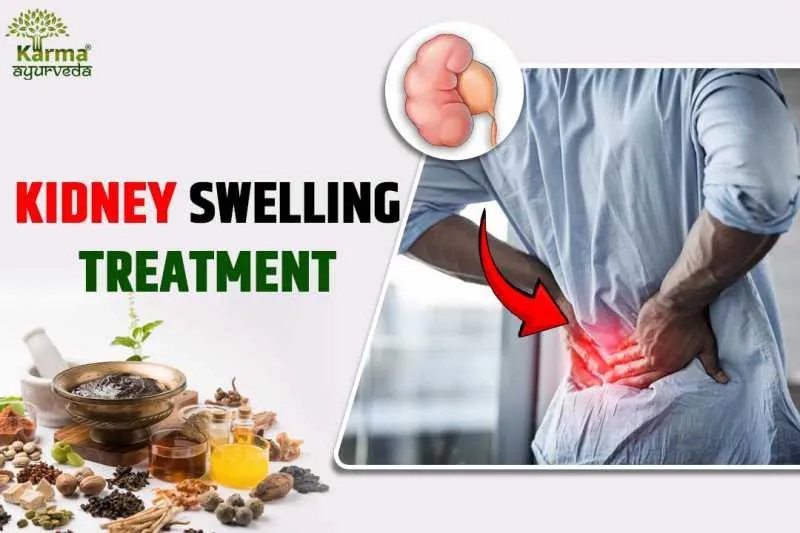
Human kidneys filter waste from the blood in the form of urine. This urine is transferred to the bladder through the ureters, the pipe or tube connecting the kidneys and bladder. Due to certain factors, there might be an obstruction in these tubes (the ureter) that causes the storage of pee in the kidney, ultimately causing their swelling. This swelling of the kidney is also termed hydronephrosis.
Hydronephrosis is a type of upper urinary tract dilation. It can be identified in people of all ages. Kidney swellings can be mild or severe, depending on the underlying cause, in an individual. It may occur in one or both of the kidneys at the same time. The excess swelling can result in increased pressure in the kidney cells, and the end result might include total kidney failure. It is important to seek the proper kidney swelling treatment before it reaches the level of severity. Let’s discuss in detail the causes, symptoms, complications, diagnosis methods, and possible treatment methods for kidney swelling.
Hydronephrosis, or kidney swelling, is caused by other existing diseases that may create impediments to the normal functioning of the urinary tract. Some of the probable factors may be:
Ayurveda links the blockage to an imbalance in the body's doshas (energy) due to various factors. These blockages will lead to an extra buildup of urine in the kidney and cause swelling. This whole process of swelling might be gradual or sudden. To prevent the problem from becoming severe, you should see kidney experts promptly for kidney swelling treatment.
Signs and Symptoms Indicating Swollen Kidneys
Hydronephrosis might not show any major symptoms initially, but with the gradual buildup, there may be some symptoms such as:
These symptoms may or may not confirm the presence of obstruction in the urinary tract. It is advised to ask an expert for a proper diagnosis and kidney swelling treatment.
Kidney swelling is believed to cause a lot of serious complications if left untreated. Some of the complications are:
It is important to seek timely kidney swelling treatment to avoid any of these complications. Consult your doctor for suitable diagnostic methods.
Kidney swelling can be dangerous if it gets to severe stages, so it is important to take care of your kidney's health with some standard precautions, as mentioned:
If you observe any symptoms of a swollen kidney, you should ask your doctor for the diagnosis and treatment method. Your doctor might use any of the below tests:
Urine test: The examiner might check your urine for the presence of any abnormalities, blood, crystals, and germs.
Blood test: The doctor might check the creatinine level or any other signs showing the efficiency of the kidneys.
Physical examination: It may include queries related to the physical symptoms and the medical history of an individual.
Imaging tests: The examiner can also use imaging tests such as an MRI or CT scan to check for abnormalities, confirming improper kidney function and swellings.
The first step toward the treatment of kidney disease is to ease the pain by removing the extra urine buildup with any external help. After that, the underlying obstruction is to be removed. The doctor might detect the impediment and suggest a suitable method to steer clear of that blockage. While the allopathic method undoubtedly helps in the treatment process, if you are looking for a holistic approach to your health, Ayurveda is the way. Ayurvedic treatment strategies for kidney swelling include utilizing herbal remedies, altering your eating habits, and taking advantage of the various treatment therapies.
Ayurvedic kidney swelling treatment method:
Why Karma Ayurveda?
Karma Ayurveda provides a proven kidney swelling treatment strategy that is unique to the medical history and diagnosis of the individual. With a team of experienced professionals, we not only ease the pain but also resolve the root cause of the disease.
Consult Karma Ayurveda’s kidney expert now for the specific treatment strategy for your kidneys.
Q: Can kidney swelling be cured?
A: Kidney swelling can be cured with a proper treatment strategy as suggested by healthcare experts, which may include surgery, antibiotics, or the Ayurvedic approach.
Q: Can kidney swelling cause urinary tract infections?
A: Yes, kidney swelling is an upper urinary tract dilation, which might increase the risk of urinary tract infections.
Q: Is the Ayurvedic kidney swelling treatment possible?
A: Yes, ayurvedic kidney swelling treatment is definitely possible. Consult an expert to suggest the exact method for curing the complications.
Q: Is drinking water good for hydronephrosis?
A: Drinking excess water can prove dangerous as the kidneys already contain a buildup of urine. This may result in increasing the severity of hydronephrosis.
Q: What foods are bad for a swollen kidney?
A: Avoid the intake of excess salt, high-fat foods, and alcoholic beverages. Ask your dietician for a proper dietary recommendation.
Q: Is the enlarged kidney treatment necessary?
A: Yes, it is important to seek enlarged kidney treatment since it can otherwise lead to other serious health complications. Consult a doctor for a suitable treatment strategy.
Q: What are the swollen kidney symptoms in adults?
A: It is asymptomatic at its initial stage; however, the increased severity might result in some signs such as urinary disorders, inability to empty the bladder, abdominal pain, fever, fatigue, or more.
Q: What are the probable complications in the absence of enlarged kidney treatment?
A: The ignorance of enlarged kidney treatment may lead to severe disorders such as kidney failure and an increased risk of infection.
Second Floor, 77, Block C, Tarun Enclave, Pitampura, New Delhi, Delhi, 110034